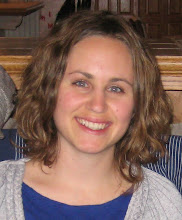Wednesday, January 27, 2010
Rebuild Sudan: Open Architecture Network
Saturday, January 16, 2010
Ray Anderson and Daniel Quinn: "Think Broader"
I first heard Ray Anderson speak at a sustainability/green conference in Los Angeles approximately three years ago. Unlike the other speakers, his speech focused on the reasons why he believed in sustainability and what this meant to him personally as well as professionally. He spoke about two experiences that contributed to his transformation - a book and a hike. Ishmael, a book by Daniel Quinn, challenges the popular belief that humans are the center of the earth; that we are the reason the earth and the universe exist. "In other words, the world doesn't need to belong to man - but it does need man to belong to it. In other words, man does have a place in the world, but it’s not his place to rule. The gods have that in hand. Man's place is to be the first. Man's place is to be the first without being the last." (Ishmael, pg. 243, Daniel Quinn.)
The second experience he mentioned was a hike he took in Canada. As he hiked, he ran into a moose blocking the trail. At that moment, he had to decide whether to go a different direction or to try to scare the moose away. Rather than beginning to clap and shout loudly, he silently retreated, respectfully acknowledging that the animal's right to the trail was equal to his own. Quinn's words had inspired him to respond differently to the moose and to reconsider his actions and choices in all aspects of life, including his role as the founder of the carpet company Interface.
Impressed by Anderson's conviction and transformation, I decided to read Ishmael for myself. It was as thought provoking and paradigm challenging as I had expected. As I was reading, I wrote in my personal journal, "To use a metaphor that Ishmael mentioned, I feel like a tourist in my hometown. Residents don't act like tourists because they don't need to - they know their land. They know the monument that sits in the town square and the boats that sail in the bay. There is no need to revisit them and take pictures to refer back to - for they are embedded in our minds and in our consciousness - or are they? I feel like a tourist in my hometown. I thought I knew what it looked like, but at a second glance I am surprised. Is this what I saw the last time I was here? Is this what the tourists see?" (March 8, 2008) I began to ask questions such as "Did God stop creating once man was made? Was the world created for man... or was man created to be part of all creation?" (March 8, 2008)
Quinn, as well as Ray Anderson, urge us to reconsider our role, lives and place in the universe in hopes that we will deliberately choose where we will stand - rather than let culture, profit, and demand push us along as an animal caught in a stampede. (To us another metaphor mentioned in Ishmael.) After listening to Anderson's TED talk "The Business Logic of Sustainability" in which he addresses future generations, technology efficiency and use, affluence versus happiness, I believe his message could be summarized into the following motto "Think Broader." Quinn, through his written words, and Anderson, through his company, inspire and encourage others to widen their vision, consider others, and live out the change they believe in.



